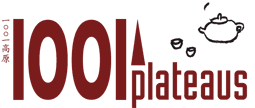關于
Originating in the wild and lush forests of what is now Yunnan and Sichuan, Chinese tea has a long and rich history. Tea has been chewed on by the mythical Yeti, picked from the karstic cliffs of Wuyishan, processed by secretive roasters of Anxi and the Dai people in Xixuangbanna, dumped out by the revolutionaries of the Boston Tea Party, carted by camel for export, traded for opium, brewed with water drawn at sunrise from the dead center of a river, and drunk straight out of a teapot’s nose.
Religions have used tea to advance the journey to enlightenment, governments have gone to war to control access, and emperors have demanded tea as a tribute. People have a way of coming together over a pot of tea, conversation is always enriched by a good brew. Tea can be a pleasant way to wind down an evening, a good pick-me-up in the late afternoon and an excellent morning greeting. Tea, brewed well, can taste like nothing but the purest water or the most complicated blend of fruit, flowers, herbs, and earthy fragrances.
Having the best leaves is no guarantee of a quality cup of tea — the source and temperature of the water, the brewing time, and even the age of the porcelain cup, or vibrations introduced into the liquid, can make a difference. (Some people say the company matters a great deal as well).
We love sharing our knowledge so our customers get the most out of their tea experience. Quality information on tea is hard to come by, and we hope to never stop learning. Information, like tea, like China, and the whole world for that matter, is constantly in flux. A pu'er tree planted 1000 years ago gets "lost" due to war and famine, classified as "wild" when it's re-discovered, and is now is slowly being co-opted back into an arbor type of existence. This is the perfect example of tea.
A little about us. We have always been interested in quality beverages, be it wine or coffee or tea. In 2000 we were awarded a grant to study tea in China so we spent over seven months visiting all the famous tea producing regions and chatting (and drinking) endlessly. From the three-wheeled moto-car driver in Wuyishan who now owns his tea farm, to the Yixing potter who hoards pre-1970 clay, to the rich developer of a tea-theme park filled with aged pu’er basking in ginger flowers and orchids, we found that tea people were the happiest folks we’ve ever met. Through some twist of fate, or what the Chinese call "yuan," we decided to open up our virtual teahouse and share what we know.
